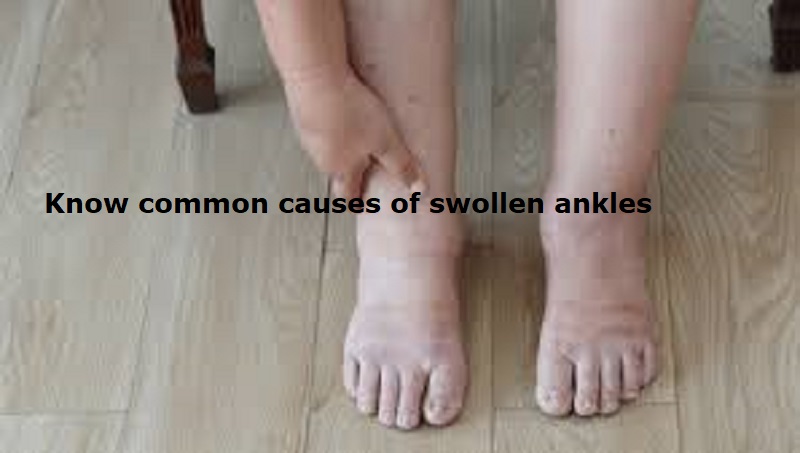
The feet, ankles, and legs are common sites of swelling because of gravity’s effect on the fluids in the human body. However, injuries and subsequent inflammation may also cause fluid retention and swelling.
Swollen ankles occur when excess fluid builds up in the tissues of the lower legs and feet. This swelling can be a sign of various underlying conditions, such as heart failure, kidney or liver disease, venous insufficiency, or simply the result of prolonged standing, sitting, etc.
Common causes of swollen ankles:
1. Fluid retention
Fluid retention, or edema, often occurs when the body’s tissues retain too much water. This can be due to prolonged standing or sitting, hormonal changes, or certain medications.
2. Injury or trauma
Ankle injuries such as sprains, strains, or fractures can cause swelling as a natural response to inflammation.
3. Heart failure
In heart failure, the heart is unable to pump blood effectively, leading to fluid buildup in the body, particularly in the legs and ankles. This condition often causes swelling, especially after standing or sitting for long periods.
4. Venous insufficiency
Venous insufficiency occurs when the veins in the legs are unable to efficiently return blood to the heart, causing blood to pool in the lower extremities.
5. Kidney disease
Kidney disease can lead to an imbalance in electrolytes and fluid retention, causing swelling in the ankles and other parts of the body.
Also Read: Simple home remedies to prevent bloating
6. Liver disease
Liver disease, particularly cirrhosis, can lead to fluid retention in the lower extremities due to reduced protein production and increased pressure in the veins.
7. Lymphedema
Lymphedema occurs when the lymphatic system is unable to properly drain lymph fluid, leading to fluid buildup and swelling in the ankles and legs. This condition can be caused by surgery, radiation, or infection.
8. Medications
Certain medications, including those for blood pressure, diabetes, and anti-inflammatory drugs, can cause fluid retention and swollen ankles as a side effect. These medications may alter the body’s fluid balance or affect circulation.
9. Pregnancy
During pregnancy, the body retains more fluid, and the growing uterus can put pressure on the veins in the lower body, leading to swollen ankles. Hormonal changes also contribute to fluid retention during pregnancy.
10. Obesity
Excess body weight can put additional pressure on the veins in the legs, leading to poor circulation and fluid buildup in the lower extremities. This pressure can result in swollen ankles, particularly after standing or sitting for extended periods.

Post Your Comments